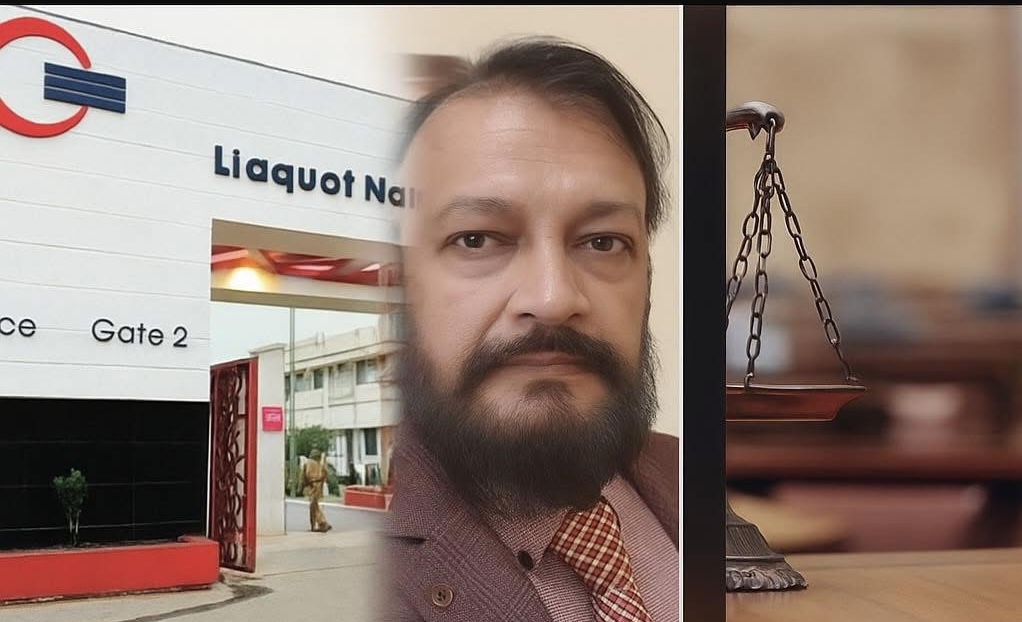Injustice at Karachi’s Leading Hospital — Labour Court Orders Liaquat National Hospital to Reinstate Dismissed Employee
Special Report
KARACHI: In a landmark ruling exposing the inner workings of one of Karachi’s most prominent healthcare institutions, the Sindh Labour Court-I has directed Liaquat National Hospital (LNH) to immediately reinstate its former Head of Biomedical Engineering, Ansar Ahmed Chishti, with full back pay and benefits.
The judgment, delivered on September 29, 2025, declared the hospital’s allegations of misconduct “unsubstantiated and unlawful,” terming the dismissal a violation of labour laws and due process. The case, however, goes far beyond an individual’s reinstatement it paints a troubling portrait of how one of Pakistan’s major healthcare centres allegedly mistreats its workforce under the guise of administrative authority.
For over two decades, Mr. Chishti had served LNH as a Biomedical Engineer and was promoted to Head of Department in 2009, overseeing maintenance of life-saving heart-lung machinery and surgical equipment. In 2024, he was abruptly suspended and terminated for what management described as “unauthorized absence of ten days.”
Mr. Chishti maintained that he had duly applied for leave to perform Umrah, submitting the request to the department office before departure. However, the management later labelled his absence “unapproved,” claiming no record of his application existed. During the hearing, court documents and testimony confirmed that the leave application had, in fact, been filed but never forwarded to higher authorities a lapse the judge ruled could not be held against the employee.
Presiding Officer Judge Faraz Ahmed Chandio observed in his detailed order that the hospital failed to conduct any formal inquiry prior to termination and thereby violated statutory labour protections. The court further recognized the applicant’s employment status as that of a “worker” under the Sindh Industrial Relations Act (SIRA) 2013, making him fully entitled to labour law safeguards.
“The absence of the applicant cannot be deemed unauthorized,” the judgment stated. “He had fulfilled all procedural requirements for leave. If the administration failed to process or approve his request, the fault lies with the management not the employee.”
The court ordered LNH to reinstate Mr. Chishti within 30 days and release all withheld salaries and arrears.
Yet, this ruling underscores not merely an individual victory, but a deeper structural issue within Liaquat National Hospital an institution that multiple insiders describe as having “a culture of silence and suppression.” Sources familiar with LNH operations claim that dozens of similar cases of wrongful termination and wage disputes are currently pending before labour tribunals.
Employees allege that no genuine labour union exists at the hospital. Instead, they say, a management-backed “dummy union” was created to weaken worker representation and preempt collective bargaining. One former staff member told this reporter,
“Anyone who questions unfair practices is targeted suspended or dismissed under fabricated charges. Even when courts rule in our favour, the hospital drags the appeals for years to exhaust workers financially.”
The case has also reignited debate over LNH’s internal governance and long-standing accusations of nepotism. According to several employees, the institution’s senior management is led by individuals well beyond conventional retirement age the Medical Director is reportedly 76, while the Director of Administration is 75 both reappointed multiple times on contract. Insiders say this “geriatric leadership” has stalled institutional growth and blocked younger professionals from advancing.
Adding to the controversy, the hospital’s Rs. 6 billion “Mega Project,”launched in 2020 and originally slated for completion by 2023, remains incomplete as of 2025 its cost now ballooning to an estimated Rs. 24 billion, with no public explanation for delays or financial escalation.
Investigative findings suggest potential conflicts of interest in the project’s execution. A company allegedly owned by a sitting member of the hospital’s governing board was awarded major construction contracts. Furthermore, the hospital’s Board Chairman reportedly holds stakes in business groups such as IGI and Treet Corporation, both of which maintain commercial dealings with LNH. Legal experts describe the situation as “a textbook case of conflict of interest warranting an independent probe.”
A lawyer representing former hospital staff remarked:
“This is a public trust institution, yet the very funds meant for healthcare are being used to fight legal battles against the employees. Instead of reform, the management has chosen resistance.”
While the court’s verdict has restored Mr. Chishti’s employment and vindicated his stance, the larger question remains unanswered what about those who cannot afford a court battle? What about the ward boys, nurses, and technicians dismissed quietly without recourse to justice?
The ruling against Liaquat National Hospital, though specific in scope, is emblematic of a wider pattern across Pakistan’s private healthcare sector where workers’ rights are often eclipsed by corporate power and bureaucratic inertia. For now, justice has reached one man. But for many others inside the same walls, the struggle for dignity and fairness continues.



